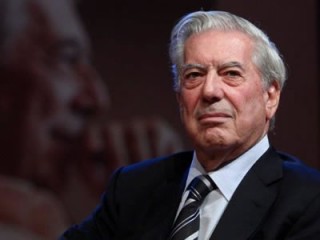
Mario Vargas Llosa biography
Date of birth : 1936-03-28
Date of death : -
Birthplace : Arequipa, Arequipa, Peru
Nationality : Peruvian
Category : Famous Figures
Last modified : 2011-09-23
Credited as : writer and politician, author, Nobel Prize for Literature
0 votes so far
His novel The Time of the Hero (1963) was inspired by his time at Leoncio Prado Military Academy, telling the story of a murder investigation blocked by fervent and hypocritical adherence to the school's code of honor. It was clearly an allegorical attack on both the academy and the larger Peruvian culture, and military leaders in Peru condemned the novel, publicly burning hundreds of copies in the academy's courtyard. Vargas Llosa could not have asked for better publicity - the book-burning sealed his celebrity, made the novel an acclaimed best-seller, and set the stage for a very successful career, provided only that he continued to create compelling literature. And he certainly did.
Vargas Llosa is a master of dialogue and shifting perspective, whose novels and stories include comedies and tragedies, historical novels, murder mysteries, and political thrillers. His writings frequently carry political, spiritual, or simply bawdy overtones, and offer controversial critiques of the racial, class, and economic hierarchy in contemporary Latin America. He has won virtually every major literary prize, culminating in the Nobel Prize for Literature in 2010.
The Green House (1966) delves into prostitution in the city and in the wilds, and the ways in which native girls are forced into such a life. Conversation in the Cathedral (1969) explores the moral depravity of life in Peru during the nation's dictatorship of the 1950s. The dark comedy Captain Pantoja and the Special Service (1973) tells of a military officer assigned to bring the service of prostitutes to soldiers in a remote jungle. The autobiographical Aunt Julia and The Scriptwriter (1977) deals with a young soap opera writer who marries his aunt, as Vargas Llosa himself did. In Praise of the Stepmother (1981) presents the odd but alluring tale of a father and son's competition for the romantic affections of the father's new wife. Condemned by prudes as "pornography", Stepmother is only fleetingly erotic, but it is perhaps the author's most popular work, and among his best.
As a young man Vargas Llosa cheered for the Cuban revolution and was among the leaders of Cahuide, an underground and illegal group of communists during an era when the Communist Party was outlawed in Peru. Decades later, though, his political perspective altered - he became one of Fidel Castro's most outspoken international critics, and in 1990 he ran for President of Peru on a conservative ticket, losing to the now-notorious Alberto Fujimori. During his political run, predictably, Fujimori's campaign ads and rhetoric used carefully-selected salacious excerpts from Vargas Llosa's novels to smear the author as some kind of a pervert.
He was a close acquaintance of fellow Nobel laureate Gabriel García Márquez, but after a famous brawl in 1976 both writers made it clear for decades that they were not on speaking terms. In 1997, in a public jibe at García Márquez, Vargas Llosa publicly released snapshots taken in the aftermath of their fist-fight, including an image of García Márquez with a blackened eye and bruised face and Vargas Llosa grinning. In 2007, though, Vargas Llosa wrote a new and laudatory preface to García Márquez's classic A Hundred Years of Solitude.
Several of Vargas Llosa's novels have been adapted as motion pictures, mostly in Spanish, but Aunt Julia and the Scriptwriter was filmed in English as the featherweight romantic comedy Tune in Tomorrow in 1990, with Barbara Hershey and Keanu Reeves.
Awards and honors:
Leopoldo Alas Prize 1959
Peruvian National Prize 1967
Rómulo Gallegos Prize 1967
Prince of Asturias Prize 1986
Cervantes Prize 1994
Jerusalem Prize 1995
Friedenspreis des Deutschen Buchhandels 1996
Nobel Prize for Literature 2010
Agence France Presse Reporter (early 1960s)
La Industria Reporter (1950s)
International PEN Past President
















